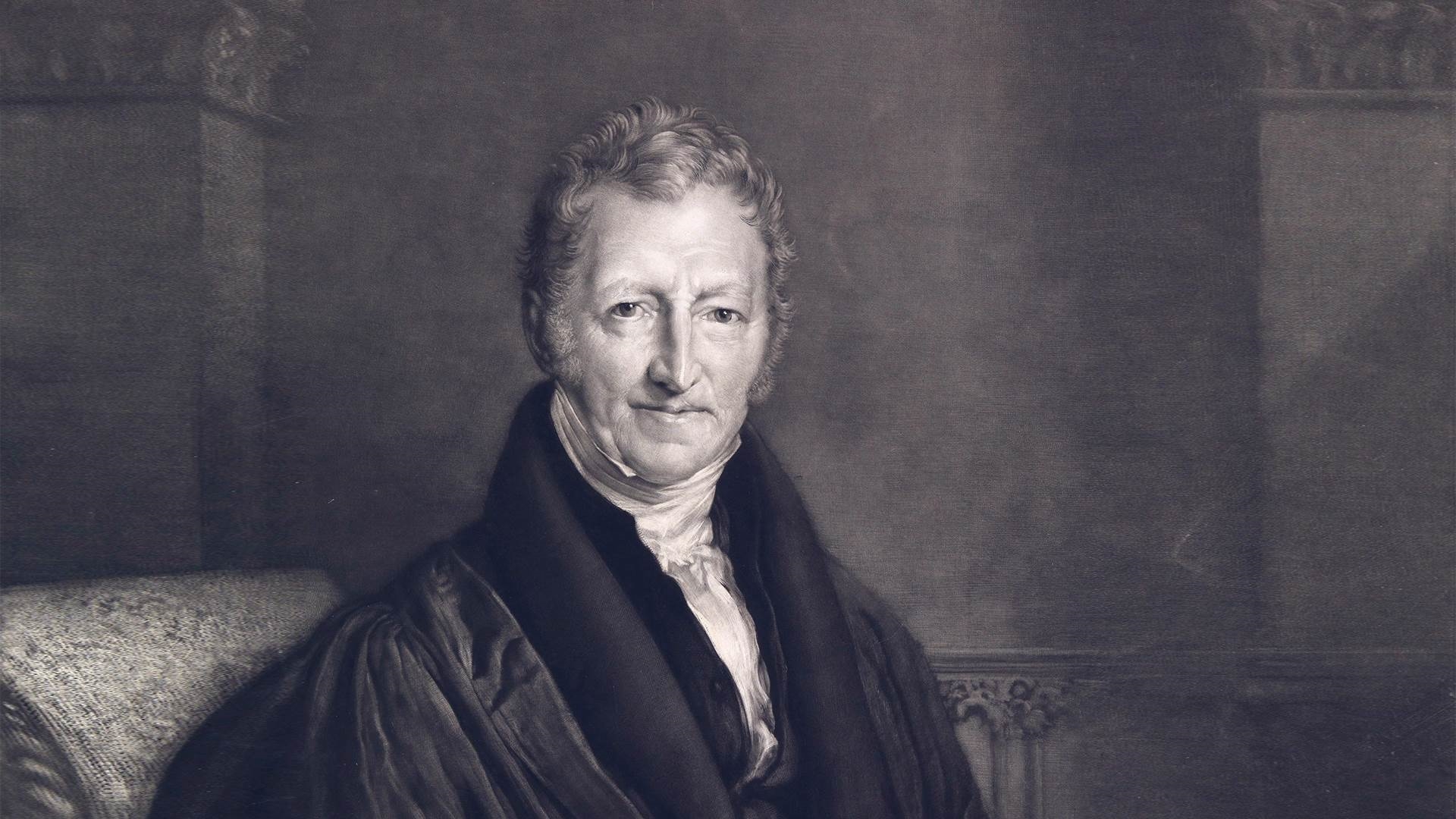Thomas Robert Malthus’ theory of population growth and its impact on the economy
Mai El-Kafoury/Mostafa Sayed

Thomas Malthus, British economist and researcher of demography, author of an essay on the principle of population, which at the time sparked a wide debate between a supporter and an opponent.
He was born in 1766 in England, Rookery City, to a prestigious family, and received his first education at home, until he attended Cambridge University in 1784.
Malthus received his master's degree in 1791, and then became Professor of History and Political Economics at the East India Company College in England in 1805, elected as a member of the Royal Society of Literature in 1824, and co-founded the Statistical Society in London in 1834.
The social conditions this economist experienced constituted a large part of its approach and thinking pattern under the period, Britain's changed from Commercial Capitalism to Industrial Capitalism, where industry has become the main area for earning profits, and the existence of technology in production has proliferated significantly. He was influenced by philosophy and the liberal system at that time, and proceeded to formulate theories supporting the principles of class diversity and the population's relationship to the economy.
Thomas Malthus was known for his widely debated theory in the eighteenth century, and in his book "An Article on the Principle of Population", he explains that the rate of population growth is faster than the pace of agricultural crop production and the quantities of food available for consumption, leading to serious economic and social problems, such as hunger and poverty.
He interpreted this based on the fact that available agricultural land is insufficient to feed the world's population, especially as human beings grow every 25 years, according to an engineering succession, while food production increases computationally and therefore people will not be able to provide enough to meet their needs regarding this development.
His theory was to point the fingers of accusation at him by economists. He predicted the deterioration of the economic situation in the States of Europe and the increase in the population, while this didn’t happen during that era, but rather food production increased as a result of the advancement of technology in agriculture, food production and significant scientific progress, and thus the rise in the living standards of European peoples rather than their decline.
Thomas Malthus wrote his first book in 1796, entitled "The Crisis", and also wrote his book "An Essay on the Principle of Population". His last book was The Principles of Political Economy in 1820. In 1834, Malthus left the world at his father-in-law's home at the age of 68 and was buried in St. Catherine, south-west England.












